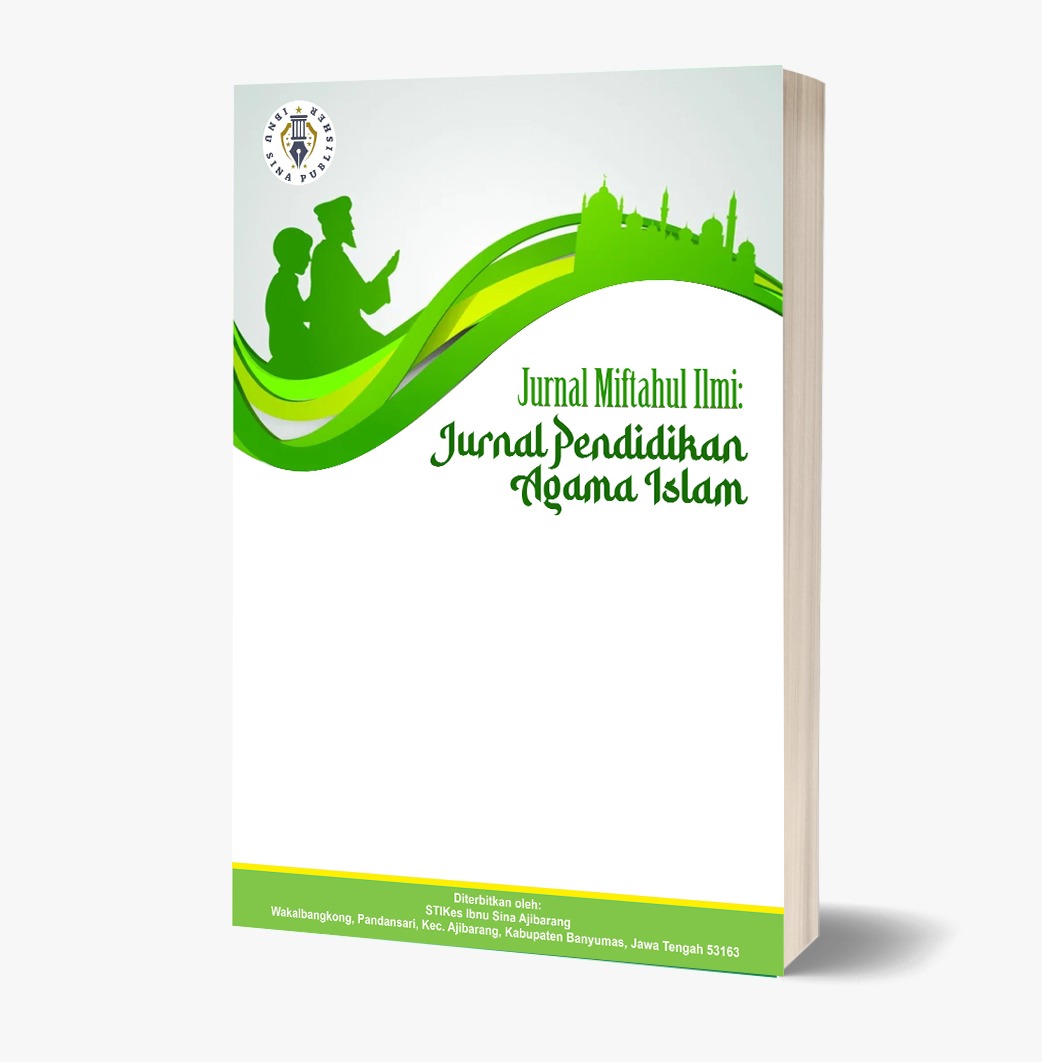Secret To Riches Dalam Perspektif Hadis
Studi Hadis Tematik
DOI:
https://doi.org/10.59841/miftahulilmi.v2i2.91Keywords:
Hadith, Islam, Sustenance, WealthAbstract
This article discusses the secret to wealth from the perspective of the Hadith of Prophet Muhammad (peace be upon him), emphasizing the importance of understanding wealth both spiritually and physically. In society, many questions arise regarding how to become wealthy according to Islamic teachings, especially based on the Prophet's hadiths. Therefore, this article aims to provide a Sharia-compliant guide on how to acquire wealth and how to distribute it properly. The discussion focuses on four main points: (1) understanding true wealth that has eternal value in the hereafter, (2) motivation to pursue wealth, (3) factors that attract sustenance, and (4) factors that hinder sustenance. The author highlights the issue that many people desire wealth but pursue it through means prohibited in Islam, such as stealing, engaging in usury, or seizing others' rights. In this context, the hadiths serve as the main foundation for explaining the principles of blessed and lawful wealth. Through this article, the author hopes to provide society with the correct understanding of how to seek worldly wealth while upholding Islamic values. This article is also expected to serve as a guide to build spiritual awareness and ethical conduct in striving for success, and to offer a reflection for both the author and readers on the journey toward halal and blessed wealth.
References
Abu 'Abdillah Muhammad ibn Ismāʿīl ibn Ibrāhīm ibn al-Mughīrah al-Juʿfī al-Bukhārī. (1422 H). Al-Jāmiʿ al-Musnad al-Ṣaḥīḥ al-Mukhtaṣar min Umūr Rasūl Allāh ṣallā Allāhu ʿalayhi wa sallam wa Sunanih wa Ayyāmih (M. Z. ibn Nāṣir al-Nāṣir, Ed.). Dār Ṭawq al-Najāt.
Abu ʿĪsā Muḥammad ibn ʿĪsā ibn Saurah ibn Mūsā al-Daḥḥāk al-Tirmidhī. (1996). Al-Jāmiʿ al-Kabīr (Sunan al-Tirmidhī) (B. ʿA. Maʿrūf, Ed.). Beirut: Dār al-Gharb al-Islāmī.
Batubara, S. (2018). Harta dalam perspektif Alquran: (Studi tafsir ayat-ayat ekonomi). Imara: Jurnal Riset Ekonomi Islam, 2(2). https://doi.org/10.31958/imara.v2i2.1255
Beni, B. (2014). Sedekah dalam perspektif hadis (Skripsi, UIN Syarif Hidayatullah Jakarta).
Choirunnisak. (2017). Konsep pengelolaan kekayaan dalam Islam. Islamic Banking: Jurnal Pemikiran dan Pengembangan Perbankan Syariah, 3(1), 27–44. https://doi.org/10.36908/isbank.v3i1.74
Darlis, A., Lubis, Y., Hasibuan, A., Alamsyah, M., & Ramadhan, W. (2023). Moderasi beragama dalam pendidikan agama Islam di SMK Harum Sentosa Perbaungan. Jurnal Pendidikan, 5(3), 6912–6919. https://jonedu.org/index.php/joe/article/view/1474
Lubis, Y. W. (2023). Pembentukan karakter unggul: Analisis optimalisasi pendidikan melalui organisasi siswa intra madrasah (OSIM) di MAN 2 Deli Serdang. Bersatu: Jurnal Pendidikan Bhinneka Tunggal Ika, 2(1), 274–282. https://doi.org/10.51903/bersatu.v2i1.554
Lubis, Y., & Ritonga, A. (2023). Mobilization school program: Implementation of Islamic religious education teacher preparation in elementary schools. Jurnal At-Tarbiyat: Jurnal Pendidikan Islam, 6(1). https://doi.org/10.37758/jat.v6i1.632
Maman, S. (2018). Kedudukan doa dalam Islam. Al-Karimah, 5, 79–93.
Maria, S., & Ulfah. (2020). Etos kerja dalam perspektif hadis. Fakultas Ushuluddin dan Adab, UIN SMH Banten.
Muslim ibn al-Ḥajjāj. (1955). Al-Musnad al-Ṣaḥīḥ al-Mukhtaṣar bi Naql al-ʿAdl ʿan al-ʿAdl ʿilā Rasūl Allāh ṣallā Allāhu ʿalayhi wa sallam (M. F. ʿAbd al-Bāqī, Ed.). Dār Iḥyāʾ al-Turāth al-ʿArabī.
Najah, U. (2017). Silaturahim dalam perspektif hadis (Kajian tematik hadis). https://repository.uinjkt.ac.id/dspace/bitstream/123456789/37194/2/ULFATUNNAJAH-FU.pdf
Naldi, A., Damanik, M. Z., & Cahaya. (2023). Konsep tawakal dalam kajian akhlak tasawuf berdasarkan dalil pada Al-Qur’an. Atthiflah: Journal of Early Childhood Islamic Education, 10(2), 320–329.
Ritonga, A. A., Lubis, Y. W., Masitha, S., & Harahap, C. P. (2022). Program sekolah penggerak sebagai inovasi meningkatkan kualitas pendidikan di SD Negeri 104267 Pegajahan. Jurnal Pendidikan, 31(2), 195–206. https://doi.org/10.32585/jp.v31i2.2637
Syarifatunnisa. (2015). Etika berbisnis dalam perspektif hadis: Studi atas hadis tentang iḥtikār.

















